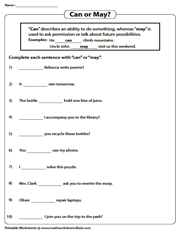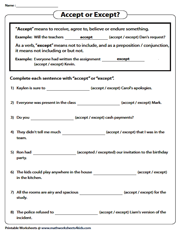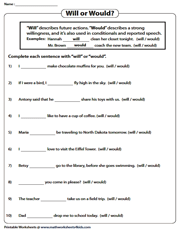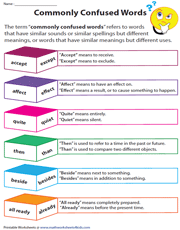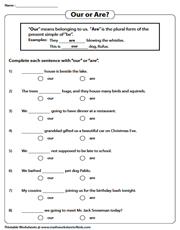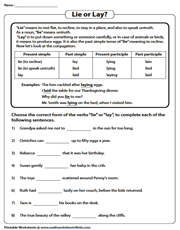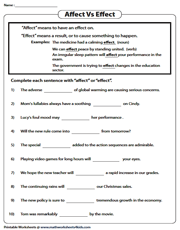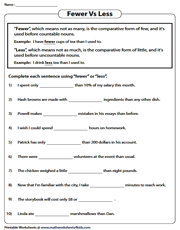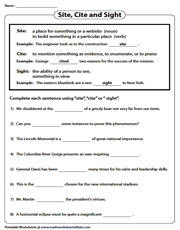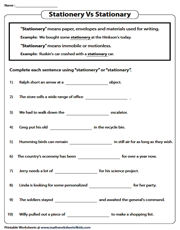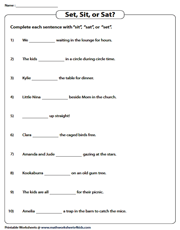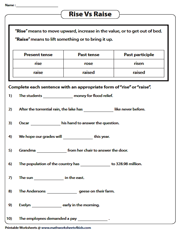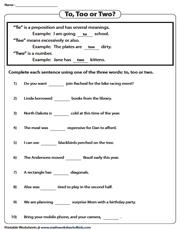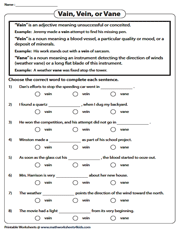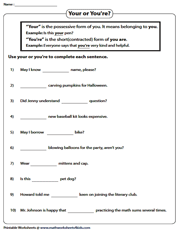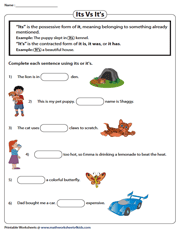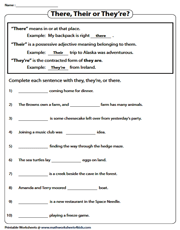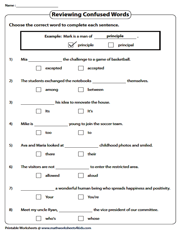- Worksheets>
- Language Arts>
- Vocabulary>
- Commonly Confused Words
Commonly Confused Words Worksheets
These worksheets on commonly confused words help students improve their vocabulary and writing skills. With exercises such as MCQs, gap filling, and sentence completion, students will learn to distinguish between tricky word pairs. Get hold of some of these worksheets for free!
In these worksheets, children learn and practice completing sentences with “may” or “can”.
Differentiate between the commonly confused words “accept” and “except”, and choose the correct word from the parentheses to complete sentences.
Choose “will” or “would” from the parentheses to fill in the blank in each sentence in these commonly confused words worksheets.
Commonly Confused Words | Chart
This printable chart serves as an excellent reference tool, clearly defining and contrasting pairs of commonly confused words.
Challenge students to complete sentences with “are” or “our,” and help avoid grammatical errors.
These worksheets provide focused practice on correctly using the verbs “lie” and “lay” with correct conjugation in various sentences.
This confused words exercise challenges students to correctly apply “affect”, a verb, or “effect”, a noun or a verb, based on the grammatical context of each sentence.
Choose the appropriate word, "fewer" for countable nouns or "less" for uncountable nouns, to complete the sentences in these worksheets.
Fill in the blanks by distinguishing the correct usage of "site"(location), "cite" (to quote), and "sight" (vision).
Select the appropriate homophone: stationary for still, and stationery for writing supplies for each blank in these printable worksheets.
Master the precise application of the three commonly confused verbs "sit" (to rest), "sat" (past tense of sit), and "set" (to place) in various sentences.
For each blank in these worksheets, students must select the appropriate verb form "rise" for ascending on its own, "raise" for lifting something.
The goal is for students to choose "to" (preposition/infinitive), "too" (also/excessively), or "two" (number) for each sentence.
In these PDF worksheets, distinguish the correct usage of "vain" (conceited/futile), "vein" (blood vessel/characteristic), and "vane" (weather instrument) based on context.
Correctly choose between the possessive "your" and the contraction "you're" for each sentence.
These worksheets guide kids in making accurate choices between "its" and "it's," reinforcing their grasp of contractions and possessives.
Distinguish between the trio “there” (meaning place), “their” for possession, and “they're”, a contraction of they are to fill in the sentences correctly.
Navigate through these worksheets, choosing the appropriate term from a tricky pair of commonly confused words to fit the sentence context.

